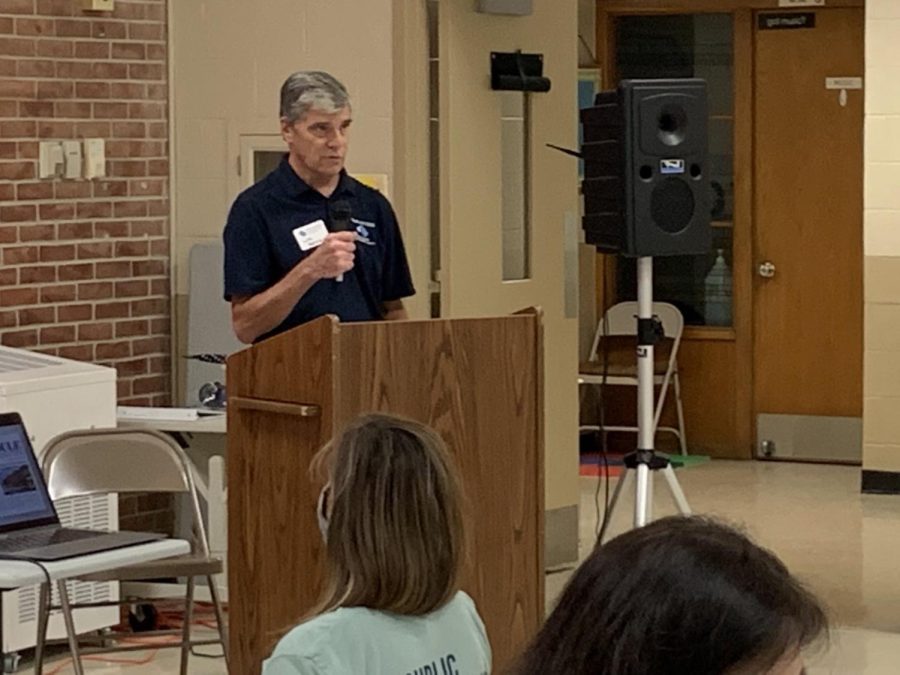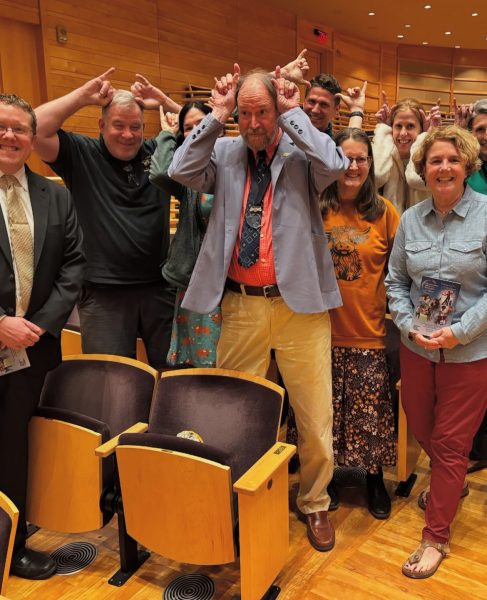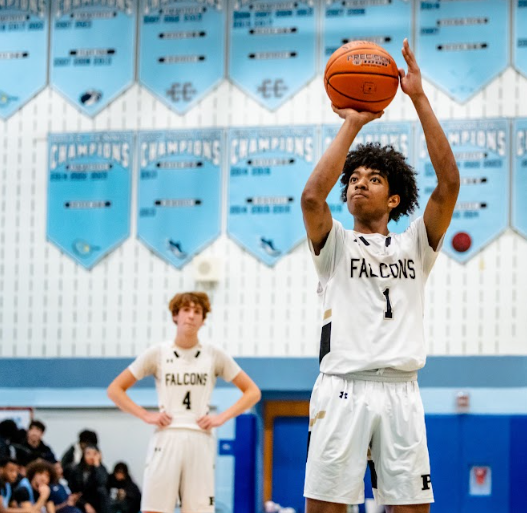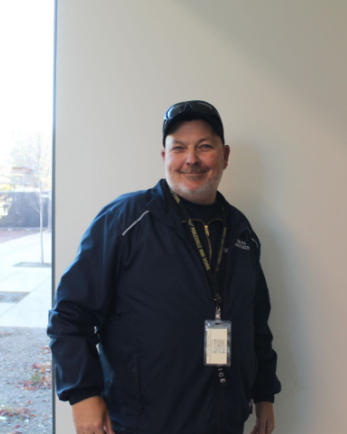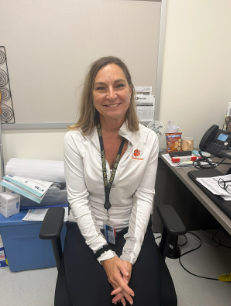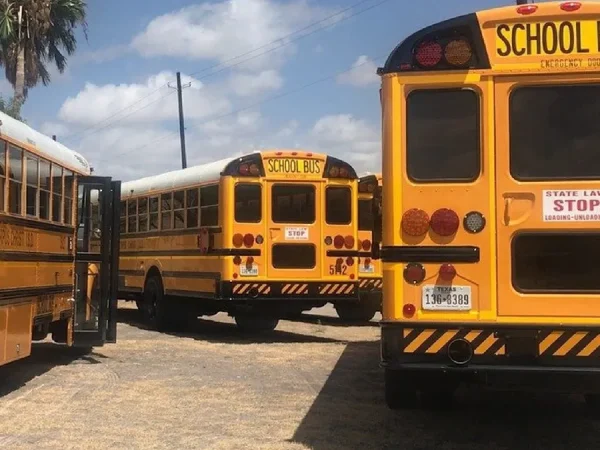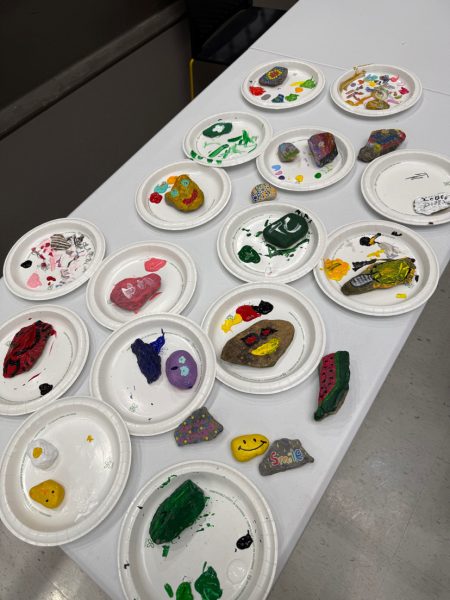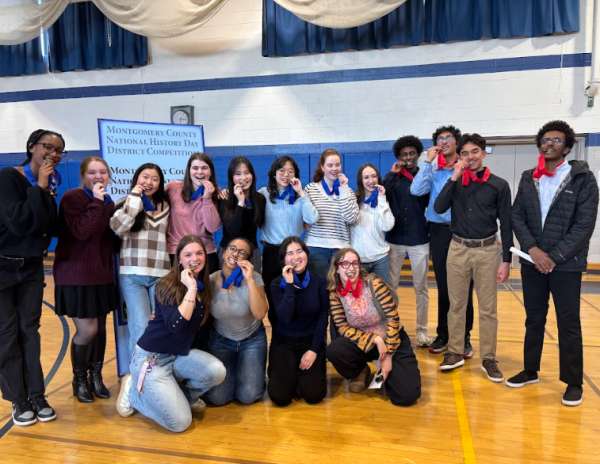Link Hoewing and Fair Access: The team that brought PHS back to life
For decades Poolesville High School has been slowly decomposing— with asbestos warning labels sporadically placed on ceiling tiles and various vermin crawling among the students. Parents have fought for PHS to be renovated for years, but it wasn’t until the Fair Access Committee, chaired by long-time Poolesville Resident Link Hoewing, that progress was actually starting to be made. Now, the high school is at the beginning of a years-long renovation scheduled to be completed by 2025.
For Hoewing, this issue was much deeper than the deteriorating school: it was about Montgomery County overlooking the needs of the Town of Poolesville because of its small population of approximately 5,000 people. The goal of renovation shifted toward educating more people on the deteriorating state of the high school and reaching out to local politicians to continue applying pressure on their agendas. As chair of the Fair Access Committee, Hoewing is responsible for routinely holding meetings, keeping track of policy progress, and organizing a calendar for future events. He notes that he spends at least 10-15 hours a week on Fair Access in order to effectively complete his duties in addition to his other commitments: volunteering at his church, writing for the Monocacy Monocle, and participating in Poolesville’s local volunteer organization, WUMCO. A near-lifelong citizen of Poolesville, Hoewing also has a personal history with PHS, having graduated himself in 1972 and watching his kids graduate in the 90s. What motivated him the most to fight for the renovation despite constant pushback was the hope that his grandkids could form a high school experience somewhere they felt safe, and not in a decrepit, old building with numerous safety hazards. Finally, it seems his grandchildren will have the high school experience he dreamed of for them.
How long have you been fighting for a new school?
I became President of the PES PTSA in the late 1980s and have been an officer in some role in all three of the schools as my daughters entered the schools. I am a life member of the PTSA and first began advocating for a new high school in the latter part of the 1990s. Even then, parts of our high school were over 50 years old.
What was the moment that you realized Poolesville High School needed to be renovated?
I could see how modern and up-to-date many other schools were. I also noticed how large their gyms were when visiting them for games. It was very obvious even back then that we should long ago have had a new school. We got on the list for modernization repeatedly throughout the 1990s and early 2000s only to be removed due to “budget constraints.” It became obvious that our school, despite its age and major problems (such as lack of ADA compliance for bathrooms) was being neglected.
What are your long-term goals for the Fair Access Committee?
We need to ensure the full funding for the school gets through the Council this year including money for the gym expansion. We also have a number of longer-term goals like getting the swimming pool enclosed so it can be used year-round. We have worked very hard on the Whites Ferry issue and continue to push on that matter. We also are focused on trying to get a Wellness Center for the high school which we think is very important now that the pandemic has had such an effect on so many of our young people.
Do you think you’ll ever feel “finished” with Fair Access?
While we have had success getting leaders to pay more attention to our needs, we need to understand that if we stopped our advocacy and did not continue to keep the pressure on leaders, many of them (although not all), would focus more attention on areas with much larger populations. That is the nature of politics. We can’t let our guard down and there remain a lot of issues— like the swimming pool —that will take some time to address. So, I don’t see the need for Fair Access and its work ending any time soon.
Your donation will support the student journalists of Poolesville High School. Your contribution will allow us to purchase equipment and cover our annual website hosting costs.
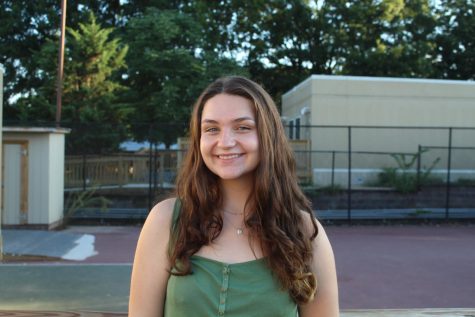
Kaitlyn is a senior in the Humanities Program. This is her second year with The Pulse but her first year as a Copy Editor. Her favorite book is Slouching...


